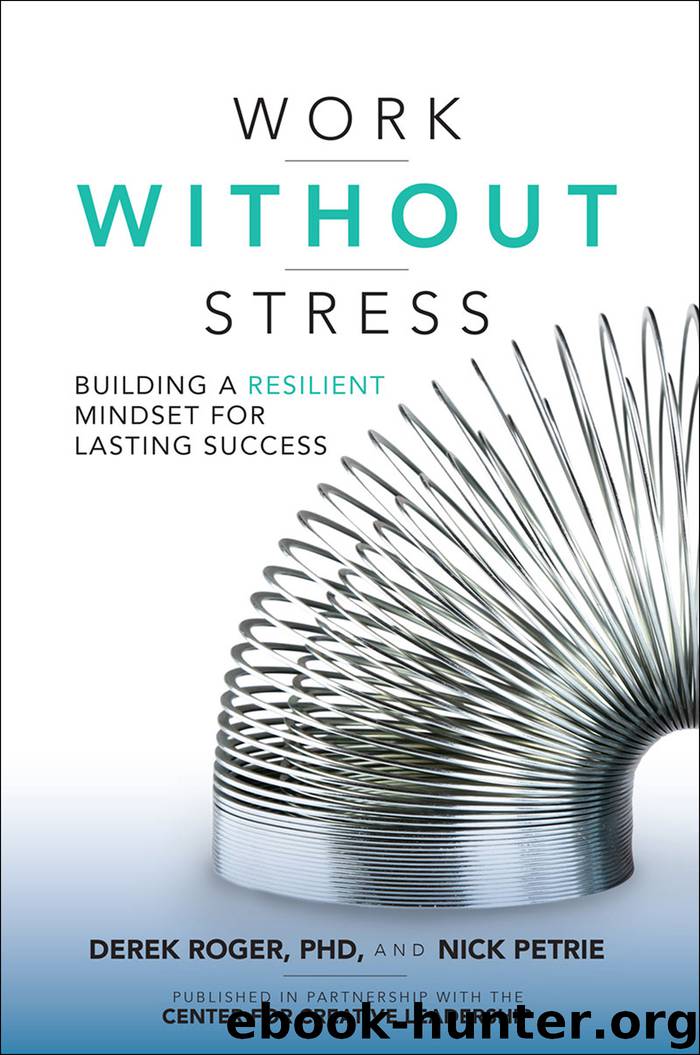Work Without Stress by Derek Roger & Nick Petrie

Author:Derek Roger & Nick Petrie
Language: eng
Format: epub
Publisher: McGraw-Hill Education
Published: 2016-09-14T04:00:00+00:00
Another caveat is that among the scales we’ve developed, emotional inhibition is the one where there is a significant bias: on average, using large random samples, men are significantly more likely than women to inhibit emotion. The findings fit with the broad stereotype of women as being more willing to say how they feel, and it turns out to be very protective: women tend to live on average up to five years longer than men do. There are many factors that contribute to the effect, but research suggests that the tendency to express rather than inhibit emotion also plays a role. The reason for the gender difference has provoked endless speculation about nature versus nurture. There are probably genetic factors at play—there almost always are!—but it is equally true that from a young age, boys have traditionally been taught that saying how they feel is a weakness.
Taking rumination and inhibition together, the preferred pattern of scores on the psychometric profile is to have low scores on both—in other words, to express emotion appropriately and not to ruminate. If people do ruminate but also tend to express how they feel, that can be helpful to the extent that although they ruminate more than most, the effect is mitigated by the perspective that is gained whenever they do unburden. There are those who score relatively low on rumination but never say how they feel, which is, not surprisingly, found more often among men than women. While they don’t incur the emotional and physiological costs of habitual rumination, it can be hard work for others trying to figure out how they feel. The most problematic pattern, though, is being a ruminator who bottles up emotion. In our lab experiments we were able to isolate the effects for each of the measures separately and together, and using measures like how long it took people’s heart rate and blood pressure to recover after being exposed to stress, we found that nonexpressive ruminators took the longest to recover of any of the groups.
Download
This site does not store any files on its server. We only index and link to content provided by other sites. Please contact the content providers to delete copyright contents if any and email us, we'll remove relevant links or contents immediately.
The Compound Effect by Darren Hardy(8903)
Tools of Titans by Timothy Ferriss(8346)
Nudge - Improving Decisions about Health, Wealth, and Happiness by Thaler Sunstein(7678)
Win Bigly by Scott Adams(7168)
Deep Work by Cal Newport(7040)
Rich Dad Poor Dad by Robert T. Kiyosaki(6575)
Principles: Life and Work by Ray Dalio(6381)
Pioneering Portfolio Management by David F. Swensen(6269)
Digital Minimalism by Cal Newport;(5740)
The Barefoot Investor by Scott Pape(5729)
Grit by Angela Duckworth(5576)
The Slight Edge by Jeff Olson(5394)
Discipline Equals Freedom by Jocko Willink(5354)
The Motivation Myth by Jeff Haden(5191)
You Are a Badass at Making Money by Jen Sincero(4905)
The Four Tendencies by Gretchen Rubin(4585)
Eat That Frog! by Brian Tracy(4499)
The Confidence Code by Katty Kay(4237)
Bullshit Jobs by David Graeber(4161)
